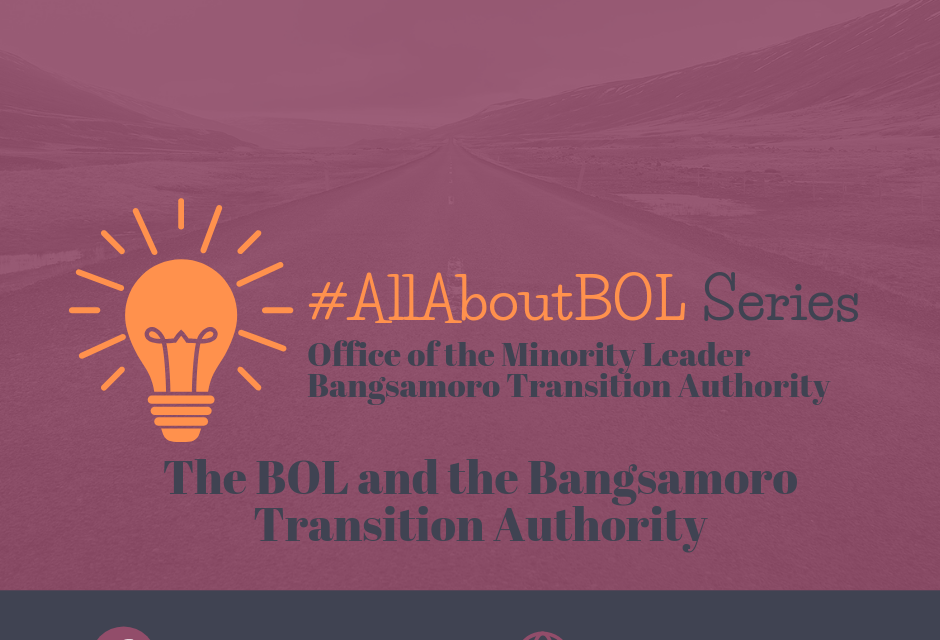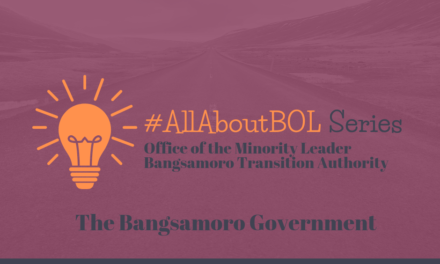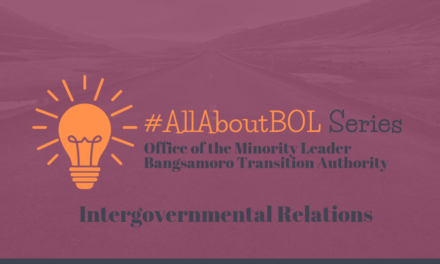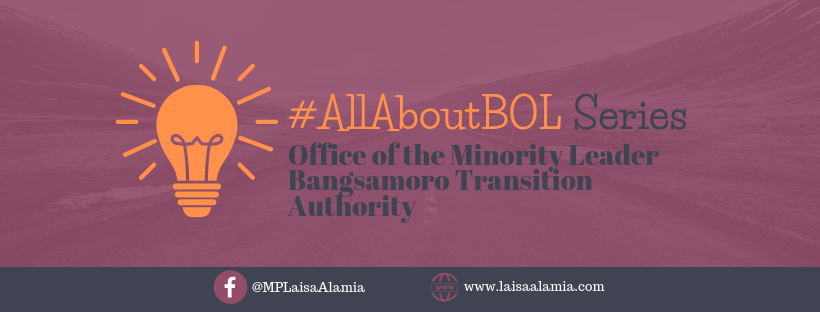
The #AllAboutBOL Series is an effort of the Office of the Minority Leader to explain and raise awareness on the Bangsamoro Organic Law (Republic Act No. 11054) as the institutional framework that establishes the Bangsamoro Autonomous Region as a political entity.
The BOL and the Bangsamoro Transition Authority (Article I, Article XVI)
The BOL, or officially the Organic Law for the Bangsamoro Autonomous Region in Muslim Mindanao, was signed into law on July 27, 2018 and ratified in a plebiscite on January 25, 2019. A product of years of peace negotiations, the BOL establishes the political entity that is the Bangsamoro Autonomous Region replacing the Autonomous Region in Muslim Mindanao (ARMM).
The law primarily provides the Bangsamoro people, defined as the natives or original inhabitants of Mindanao and the Sulu archipelago and its adjacent islands, of mixed or full blood, the right to self-determination. It also gives the region the right to self-governance to pursue its political, economic, social, and cultural development within the framework of the Constitution. The region also adopts a democratic political system and parliamentary form of government, providing the Bangsamoro people the freedom of choice and the right to participate in political processes within its territory.
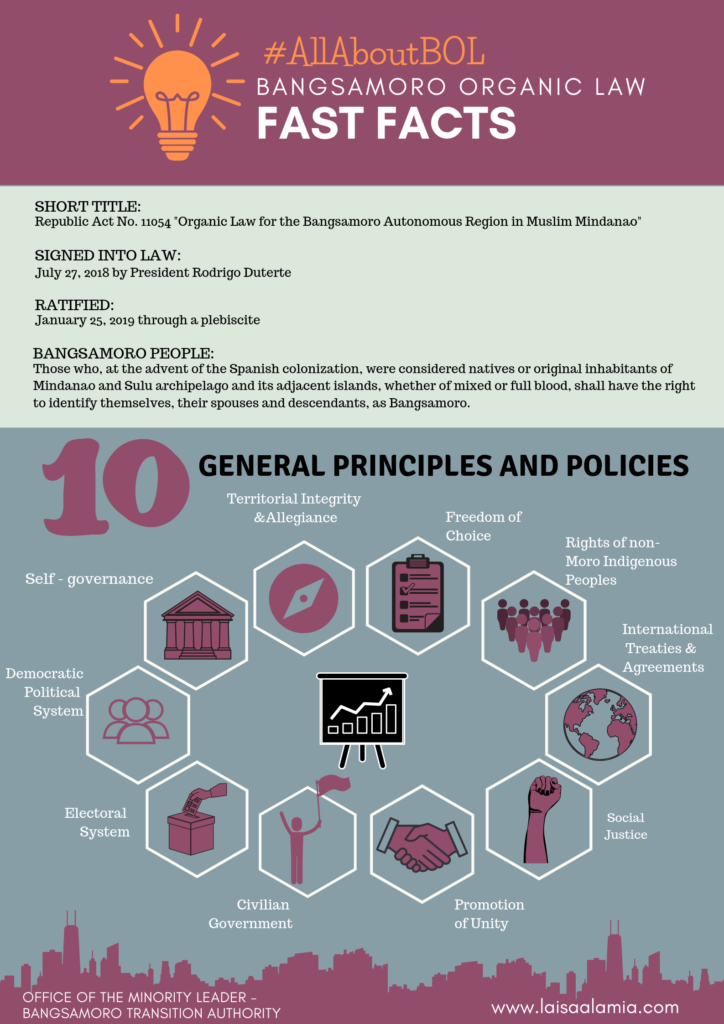
To pave the way for a smooth transition, the BOL creates the Bangsamoro Transition Authority (BTA) to be deemed as the Bangsamoro Government for the duration of the transition period. BTA is composed of eight (80) appointed members with representatives from non-Moro indigenous communities, youth, women, settler communities, traditional leaders, and other sectors. It is vested with legislative and executive powers, with the executive authority to be exercised by an interim Chief Minister and Cabinet, and the legislative authority exercised by the BTA.
The BTA is tasked to craft and approve a transitory plan that will lay down its organizational plan and schedule for the full transition. It is also mandated to prioritize the: (a) enactment of foundational legislations such as the Bangsamoro Administrative Code, Revenue Code, Electoral Code, among others; (b) determination of parliamentary districts for the BARMM first regular election; (c) organization of the bureaucracy of the Bangsamoro Government; (d) transfer of powers and properties of ARMM to the Bangsamoro Government; (e) disposition of the personnel of the ARMM; and other matters necessary for the transition.

This article forms part of the #AllABoutBOL Series published by the Office of the Minority Leader – BTA as an effort to explain and raise awareness on the Bangsamoro Organic Law (Republic Act No. 11054).

